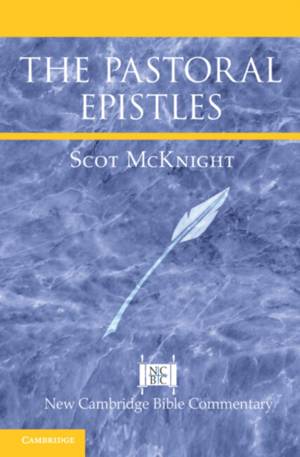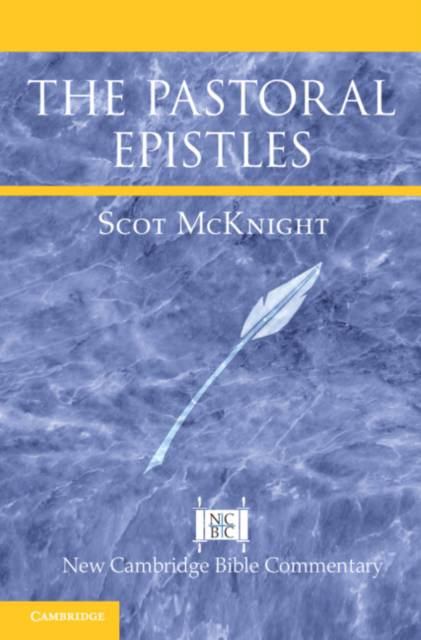
- Afhalen na 1 uur in een winkel met voorraad
- Gratis thuislevering in België vanaf € 30
- Ruim aanbod met 7 miljoen producten
- Afhalen na 1 uur in een winkel met voorraad
- Gratis thuislevering in België vanaf € 30
- Ruim aanbod met 7 miljoen producten
Zoeken
€ 41,95
+ 83 punten
Uitvoering
Omschrijving
In the church tradition three letters, now known as the Pastoral Epistles, are attributed to the apostle Paul. They are unlike any other letters by Paul. They are written to two of his closest companions, Timothy and Titus, and they instruct those two leaders how to lead gathered Christians in Ephesus and in Crete. The letters contain plenty of instruction for how church leaders at that time, and in those places, were to function. In this commentary, Scot McKnight seeks to explain the major themes of the Pastoral Epistles - church order, false teaching, and failing Christians - and their foundational vision for how Christians could make a good impression in public life. These three brief letters express a view of how Christians were to live in the Roman empire in a way that does not offend public sensibilities. They prescribe a way of public behavior best translated as 'civilized religion.'
Specificaties
Betrokkenen
- Auteur(s):
- Uitgeverij:
Inhoud
- Aantal bladzijden:
- 360
- Taal:
- Engels
- Reeks:
Eigenschappen
- Productcode (EAN):
- 9781316503591
- Verschijningsdatum:
- 9/11/2023
- Uitvoering:
- Paperback
- Formaat:
- Trade paperback (VS)
- Afmetingen:
- 152 mm x 229 mm
- Gewicht:
- 349 g

Alleen bij Standaard Boekhandel
+ 83 punten op je klantenkaart van Standaard Boekhandel
Beoordelingen
We publiceren alleen reviews die voldoen aan de voorwaarden voor reviews. Bekijk onze voorwaarden voor reviews.











